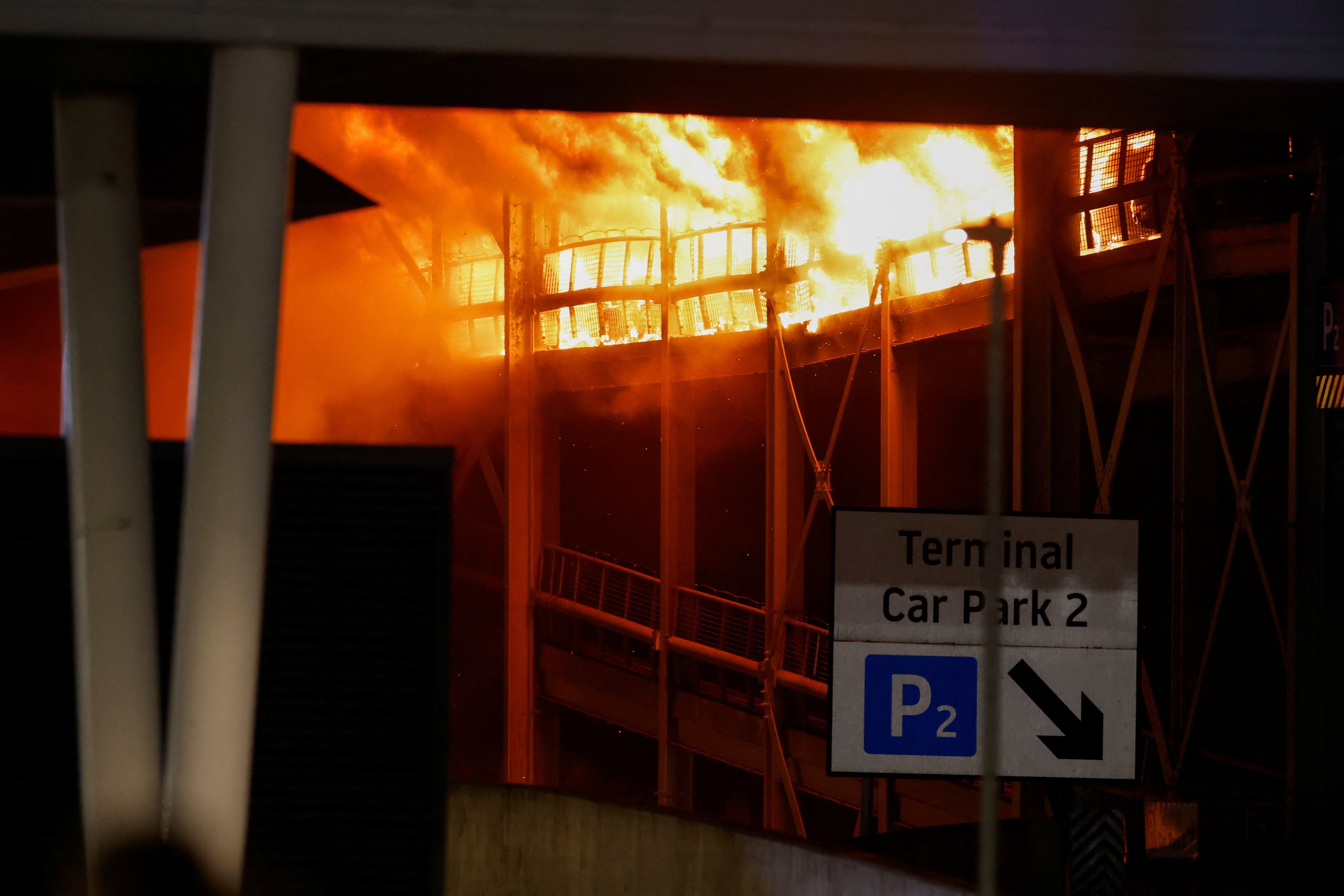Don’t blame electric vehicles for the Luton airport fire
As soon as the parking lot went up in smoke, social media was aglow with conspiracy theories blaming combustible electric batteries. Sean O’Grady douses the flames of EV hysteria…


As an enthusiast for the electric vehicle, my first thought on hearing about the terrible fire at Luton airport was: “Oh dear – people will assume it’s an EV.”
My second thought was that the fire, which appeared intense and spread so far among the 1,200 cars there that the car park partially collapsed, would therefore be used as part of this contrived backlash against electric cars, and would provide another excuse to cling on to our fossil fuel addiction.
Rishi Sunak’s decision to push back the ban on new petrol and diesel cars didn’t help with perceptions. Neither has the failure to build a reliable public charging network. Most discrediting of all for battery propulsion is the spate of house fires caused by people trying to put extra power into their e-scooters and botching it.
For a variety of reasons, some rather cynical, others ill-informed, the EV is becoming demonised – and unfairly. And so the hysterical speculation caught light.
It was quite the conflagration in Luton, but easily matched by the wildfire of speculation on what we used to call Twitter, most of which determined that it was caused by an electric car self-combusting, and was more dangerous because such fires do tend to be harder to control – and if it was a bunch of EVs all feeding the fire then that would explain the concrete floor caving in.
Wouldn’t it?
It would be no use pleading that car fires aren’t anything new, that 100,000 such incidents happen a year, the vast majority in diesel rather than petrol vehicles and only 2.4 per cent are in battery electric-powered vehicles, entirely proportionate to the numbers on the road. If we see the charred shell of a petrol car at the side of the road, do we conclude that we should ban the automobile?
So EVs are no more likely to turn themselves into toast than their internal combustion-engined siblings. It is fair to say that when a faulty cell in a large battery pack decides to go rogue, the resulting combustion is unusually powerful and long-lasting, and causes the fire brigades more problems than the usual type of car fire. But it can still be dealt with, even if it means leaving it to burn itself out. This is already understood, and why the emergency services exercise extra caution in road traffic accidents when an EV is involved.
We should probably also use the Luton incident as a timely warning about what might actually happen if an EV parked close to combustible material (ie other cars) did decide to set itself off, because of that unique intensity. If sprinkler systems are ineffective, then the car makers and car park people should find ways of getting EV fires out more quickly.
But much of that applies to traditional designs, too. How many of us carry a fire extinguisher in our cars?
Anyway, on this occasion the electric car was innocent. The Bedfordshire fire service says so: “We have no intelligence at this stage to suggest that this was anything other than an accidental fire that started in one of the vehicles that had not long arrived at the airport. It was not an EV,” according to Andrew Hopkinson, chief fire officer, who assures us: “This was a diesel powered vehicle.”
Yet, as I say, it would be prudent, as the adoption of battery electric vehicles gathers momentum, for us all to think about what we’d do to prevent disaster if one nearby, at home or work or on the street or in a car park, started to smoulder (apart from getting our smartphones out).
False alarms can have their uses.








Join our commenting forum
Join thought-provoking conversations, follow other Independent readers and see their replies
0Comments